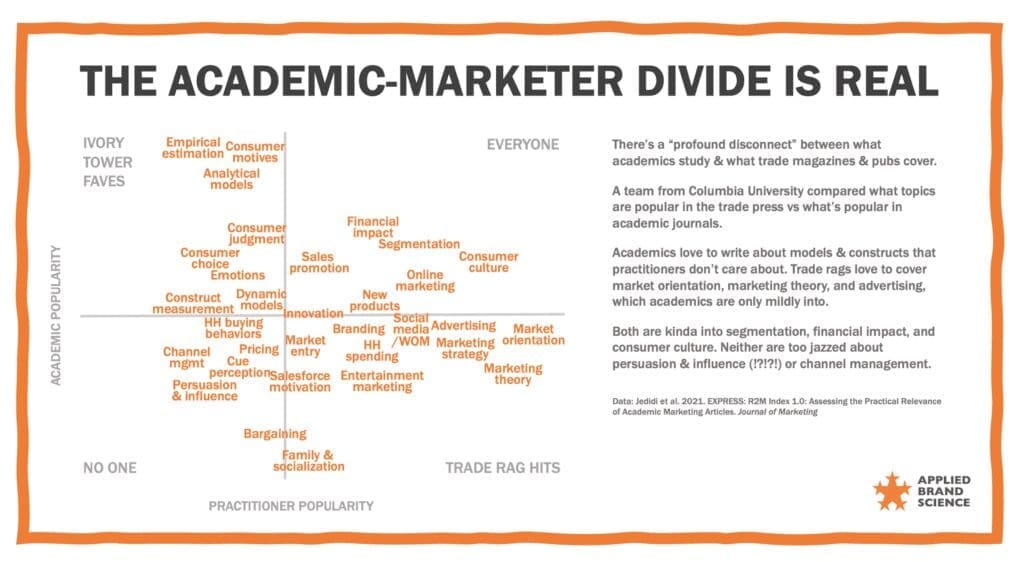What’s Missing in Real-World Teaching
As someone who fully supports formal education in marketing, I believe it gives new marketers the essential foundations they need to understand and grasp basic marketing concepts. However, there is a missing piece in the academic realm of marketing – real-world teaching. While universities and colleges continue to prioritize advanced degrees such as Master’s or Ph.D. titles, many of them often neglect to recognize the valuable professional experience that seasoned marketers bring to the table.
For example,
- John (me), 25+ years’ professional marketing experience, dismissed immediately for teaching consideration due to no Masters degree
- Mark, 11 years of teaching experience at an Art & Design school as well as a major state university, 30+ years’ professional design experience, but due to no Masters of Fine Arts, not considered
- Bill, a billion years of professional marketing experience, impressive background but no Masters, so not considered
I have worked with interns for many years and it really amazes me what their professors are telling them in terms of job functions and descriptions, salary ranges, and marketing program development. I can’t count how many things I have had to undue based on what academia teaches.
What we need is a more comprehensive approach that combines both formal education and real-world insights to best equip marketing students for the challenges they will face in the professional world.

Industry Experience Matters
In every field, there are always some concepts and techniques that can only be learned through hands-on experience. This is especially true in marketing, a rapidly evolving landscape that requires marketers to continuously update their knowledge and skills. Moreover, practical insights distilled from years of experience in the industry can offer students a more thorough understanding of the complex world of marketing.
Professionals who have dedicated decades of their life to building and refining their marketing skills are well-versed in the intricacies and nuances of the industry. From managing large-scale campaigns and marketing automation to tackling PR crises, the knowledge they possess surpasses the theoretical concepts taught in textbooks.
Although advanced degrees can offer a solid foundation in marketing principles, they often fail to provide students with this deep understanding that comes from real-life marketing experiences. It’s essential that we begin to appreciate the importance of the practical wisdom accumulated by veteran marketing professionals, even if they may not hold advanced academic qualifications.
Integrating Real-World Learning into Marketing Academia
To bridge the gap between theory and practice, marketing academia should start focusing more on incorporating real-world experiences into their educational approach. Here are some suggestions:
- Guest Speakers and Seminars: Inviting marketing professionals to share their experiences and insights via guest lectures or seminars is a great way to expose students to the industry’s realities. These professionals can provide first-hand accounts of successes and failures, as well as valuable lessons learned from their time in the field.
- Mentorship Programs: Pairing students with experienced marketers for one-on-one mentorships is another advantageous way to supplement theoretical learning. Through regular check-ins and discussions, students can bounce ideas off their mentors and learn from their real-world experiences.
- Industry-Specific Case Studies: Integrating case studies from various industries into the curriculum ensures students can analyze and learn from real-life business scenarios. This not only teaches them how to work with real-world data and apply marketing concepts but also demonstrates the wide-ranging applications of marketing across different sectors.
- Internships and Co-ops: Encouraging or even requiring students to participate in internships or co-op programs helps immerse them in real-life marketing environments. This kind of experiential learning enables students to observe and work directly with experienced professionals, fostering a deeper understanding of marketing practices and their applications in business.
The Marketing-Academia Gap
An interesting article was published by Applied Brand Science, The Marketing-Academia Gap.
A team from Columbia University led by Kamel Jedidi is building an index to measure the relevance of academic papers & journals for marketing practitioners.
For the first step, they built a topic list from 50,000 articles since 1982 in the trades, magazines & newspapers, and rated each topic’s popularity. Then they compared that to a sample of 4,000 articles over that same 37 years from four prominent academic journals.

Final Thoughts
The marketing industry should move toward a more holistic approach to education that recognizes and values the importance of real-world experience in conjunction with formal education. By acknowledging the wisdom and insights gained through years of hands-on experience, we can better equip the next generation of marketers to excel in their careers and drive the future growth of the field.
Let’s challenge academia’s traditional systems, actively seek out experienced professionals who are passionate about teaching, and most importantly, give students the opportunity to learn from real-world experiences. Doing so will ensure that our industry remains vibrant and innovative for years to come.
Your thoughts? Comment below.


